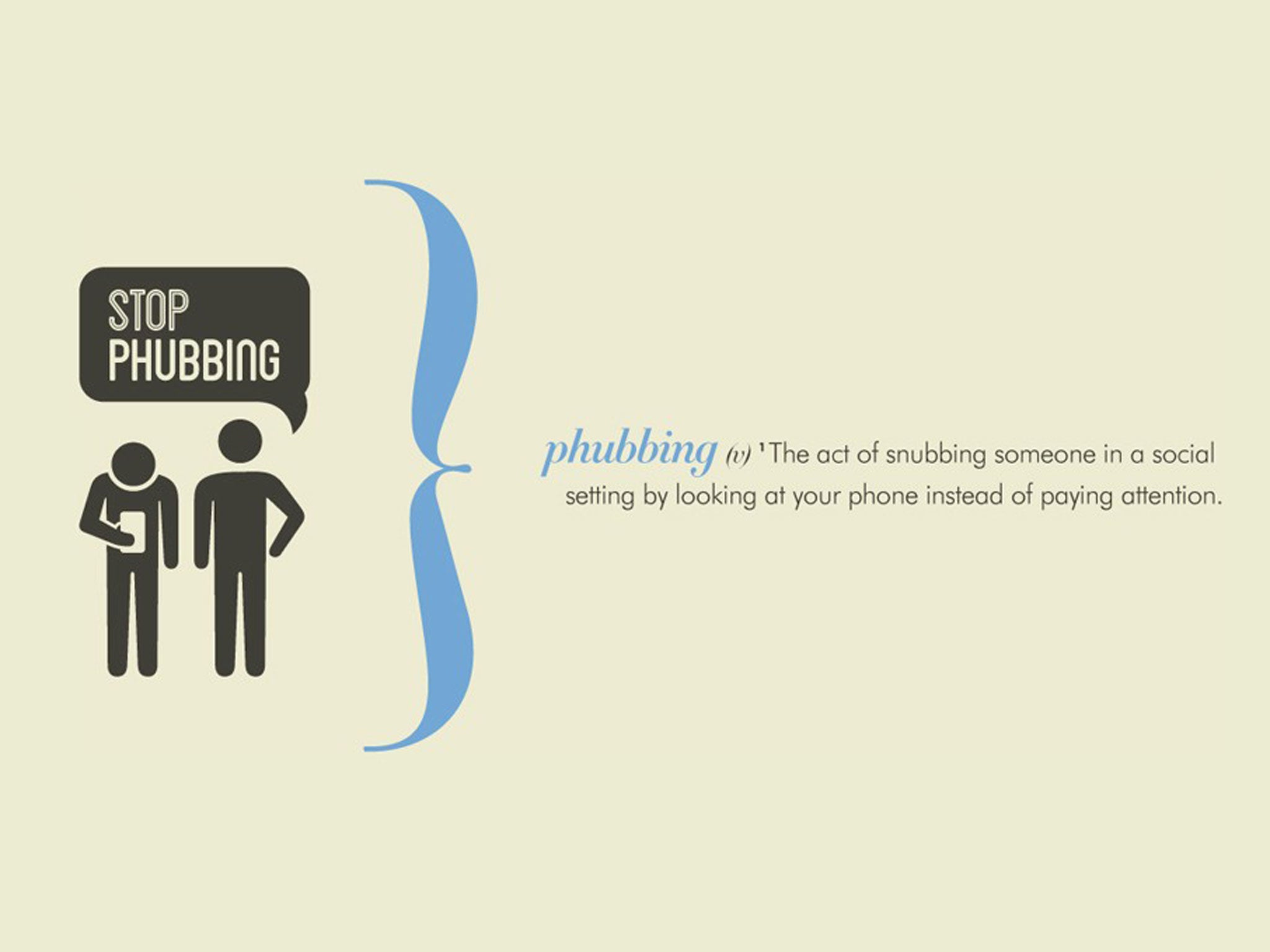The rise of phubbing - aka phone snubbing
Practice has spawned an online backlash that has gone global

Your support helps us to tell the story
From reproductive rights to climate change to Big Tech, The Independent is on the ground when the story is developing. Whether it's investigating the financials of Elon Musk's pro-Trump PAC or producing our latest documentary, 'The A Word', which shines a light on the American women fighting for reproductive rights, we know how important it is to parse out the facts from the messaging.
At such a critical moment in US history, we need reporters on the ground. Your donation allows us to keep sending journalists to speak to both sides of the story.
The Independent is trusted by Americans across the entire political spectrum. And unlike many other quality news outlets, we choose not to lock Americans out of our reporting and analysis with paywalls. We believe quality journalism should be available to everyone, paid for by those who can afford it.
Your support makes all the difference.“While you finish updating your status, we’ll gladly service the polite person behind you.” “No Tweeting, No Facebook, No Instagram, No Foursquare, No Sexting: respect the food, the music and the company you’re in.” These are the posters you can download from the elegant Stop Phubbing website – the online home of a campaign against digitally derived rudeness that has started to go global.
Coined by Alex Haigh, a 23-year-old Melbourne resident, phubbing stands for “phone snubbing”, and describes “the act of snubbing someone in a social setting by looking at your phone instead of paying attention”. Tongues are firmly in cheeks when it comes to some of the stats (“if phubbing were a plague, it would decimate six Chinas”), but the intention behind the campaign is serious enough: to highlight the scourge of glazed faces in public places, text-tapping fingers during supposedly intimate dinners, and reunions that might as well have been held via Google Hangouts given the screen time involved.
When it comes to smartphones, tablets and other mobile delights, many of us have the unfortunate tendency to behave like teenagers: prodding and poking our shiny toy to the exclusion of anyone and anything else. And that’s partly because, so far as mobile tech goes, we are all adolescents. Mass-market smartphones are barely 17 years old; iPhones only six; and iPads just three. Little wonder we’re playing etiquette catchup, or that it has taken a digital native to unlock this particular cabinet of fascination.
It sounds cheerfully daft, but there’s an uncomfortable truth at the heart of phubbing: other people are easier to handle when encountered on screen. They’re less likely to demand unreasonable exertions such as undivided attention or clean shirts. In an age of information suffusion, it makes horrible sense to shrink each other into text messages and status updates – because this is a way of coping with constant, limitless connectivity.

The other way, of course, is to board the phub wagon and start shaming others (and yourself) into a more grown-up existence. Try splitting the bill Silicon Valley-style: all your phones go on the table, and the first person to crack and begin fondling their screen foots the bill. Or you could take advantage of Stop Phubbing’s name-and-shame facility, which invites the public exposure of incessant phubbers. Beware of visiting the site via a mobile browser, though. Do this, and you’ll be met by the flickering admonition “mother fubber” then told to sit down at a computer like a sensible person.
Sometimes, hiding behind the screen remains a godsend. Who would forgo their fake urgent text messaging when a charity mugger looms across the pavement; or email management when waiting alone in a bar? Physical proximity is no guarantee of interestingness, for either places or people.
Be careful, though, who you snub next. Their wry smile and flashing fingers may already have consigned you to the phubbing hall of shame.
Join our commenting forum
Join thought-provoking conversations, follow other Independent readers and see their replies
Comments